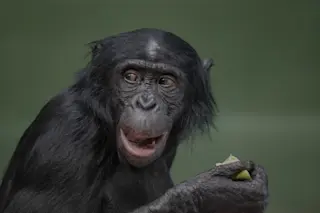(Credit: Shutterstock) The great Mr. Rogers once shared these words of wisdom to allay our fears in times of great strife: “When I was a boy and I would see scary things in the news, my mother would say to me, ‘Look for the helpers. You will always find people who are helping.’” But bonobos, our highly social and sexually promiscuous closest relatives, probably couldn’t care less about those helpers. Instead, they’d much rather keep their eyes peeled for the bullies. Like humans, bonobos are capable of compassion, empathy, kindness and generally getting along as a group. Human infants, studies show, demonstrate a preference for people they observe helping others by the tender age of three months. That’s the prosocial preference hypothesis in a nutshell: Our ability to build a cohesive society depends on cooperation and helping others, so we innately prefer individuals who demonstrate such behaviors. Given bonobos are ...
In the Eyes of Bonobos, Bullies Rule
Bonobos' preference for helpers challenges previous notions of their social behavior, suggesting a focus on dominance over prosociality.
More on Discover
Stay Curious
SubscribeTo The Magazine
Save up to 40% off the cover price when you subscribe to Discover magazine.
Subscribe













